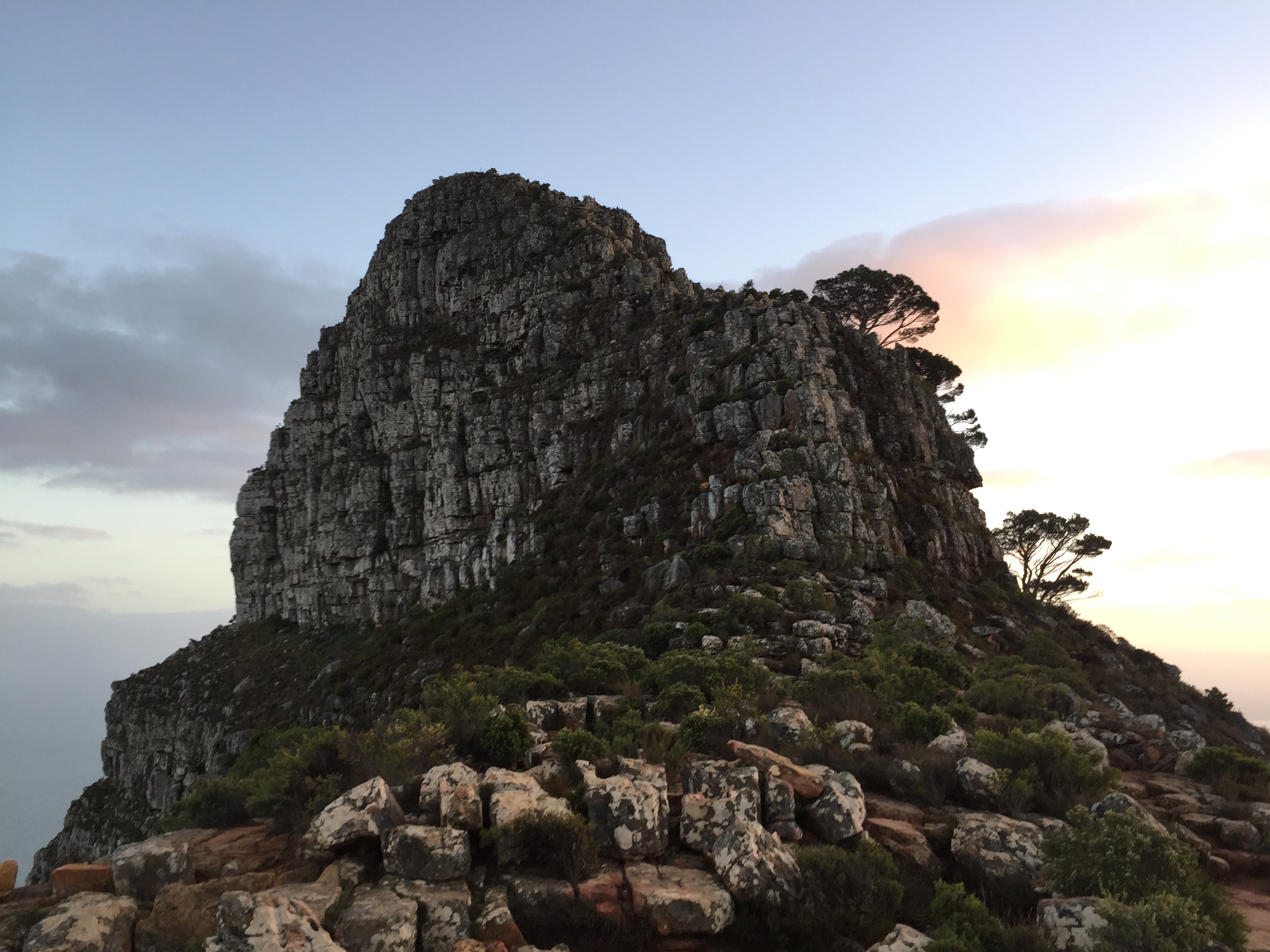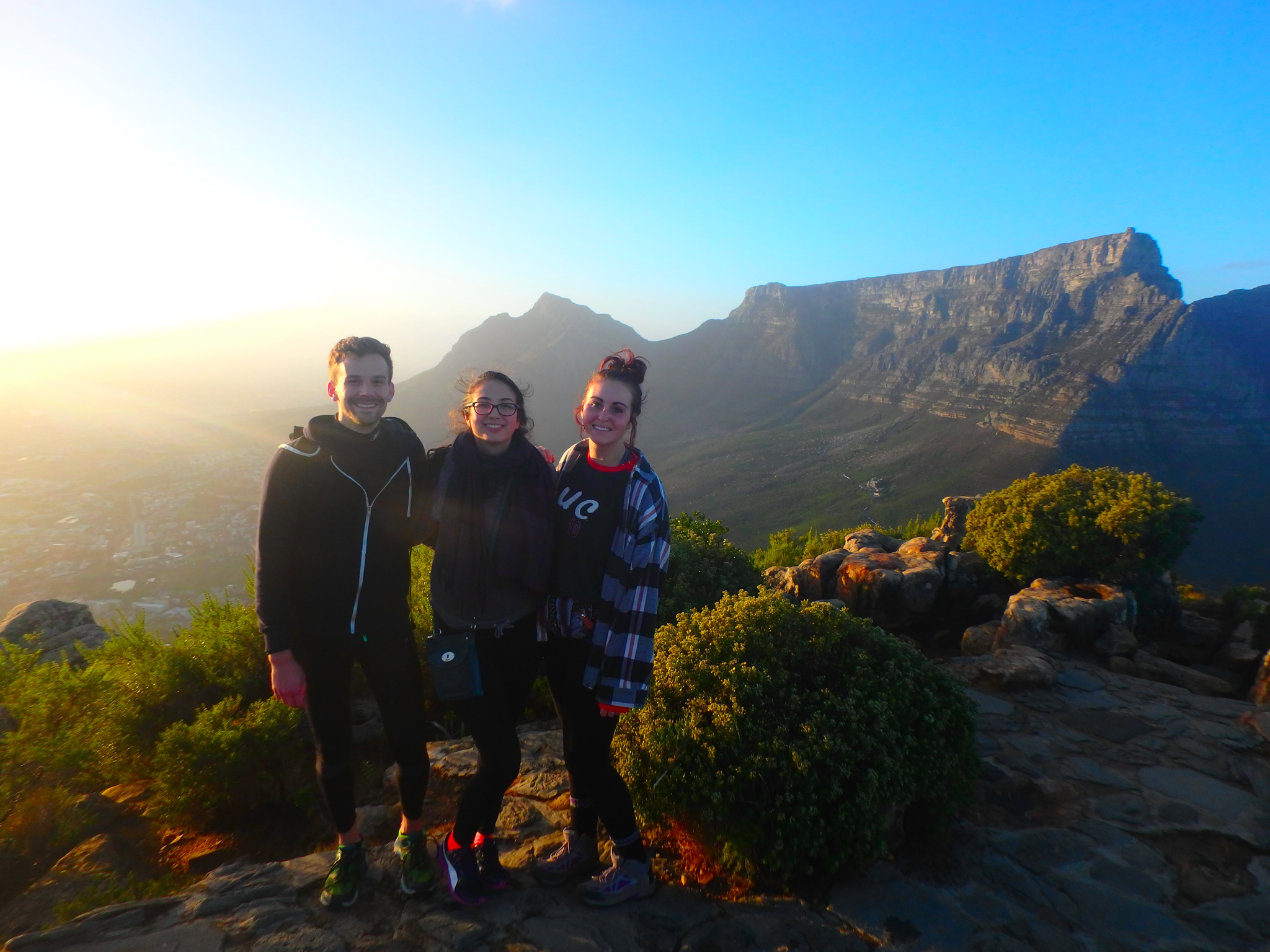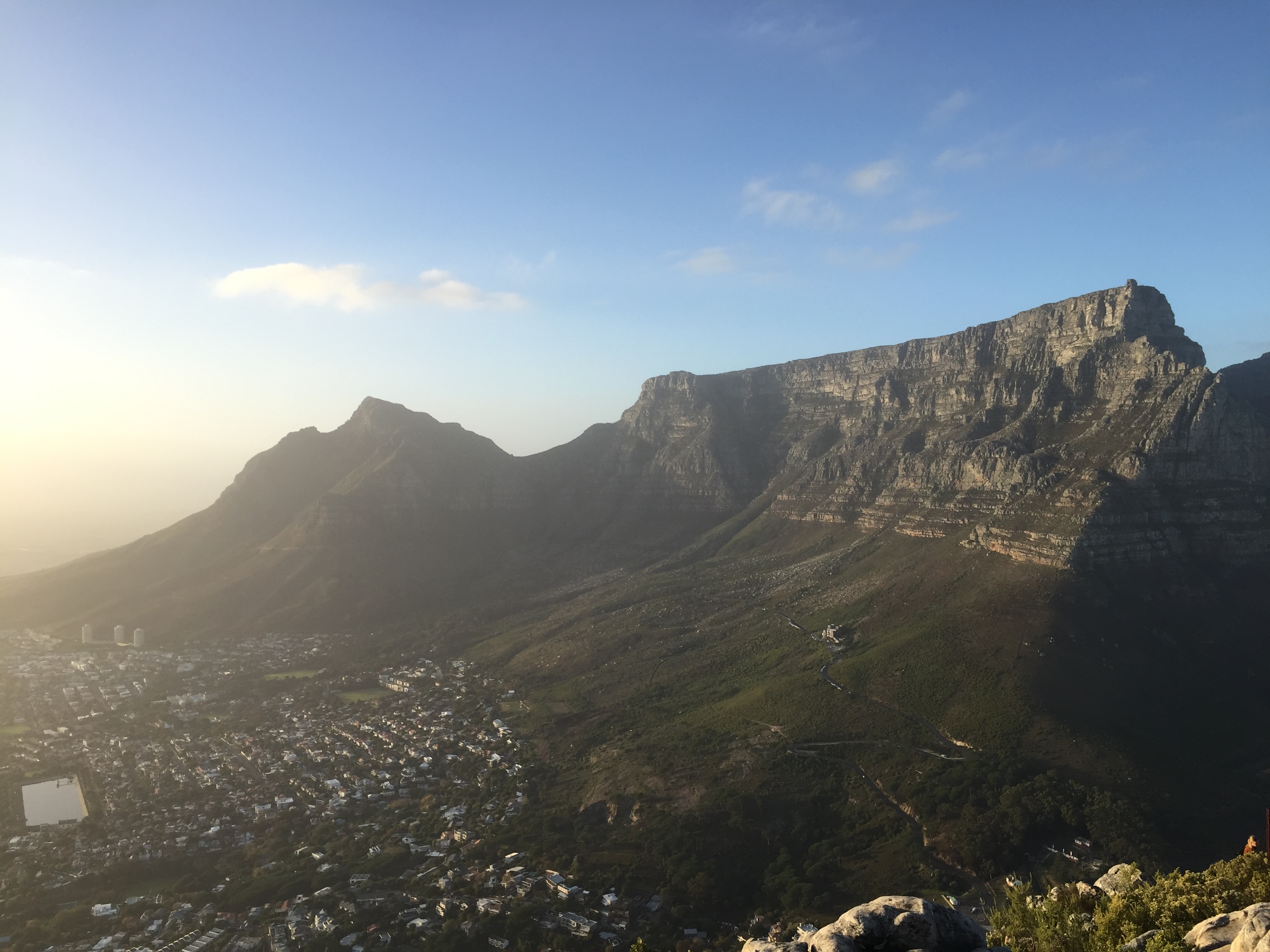Week 5 - People and Places in Cape Town
A sunrise hike up Lion’s Head, the smaller mountain one valley away from Table Mountain, proved an exhilarating challenge that started as a leisurely walk, and ended as a steep climb up rocky paths and, eventually, small rock faces. Even pet dogs could reach the top, happily panting and racing in front of their owners to make the climb (up ladders even!), but to me and my colleagues from PASSOP it felt like quite the accomplishment nonetheless (especially after waking up at 5:00AM).


A bit odd to hike the smaller mountain first, considering Table Mountain receives all the hype and magazine front cover ops. But the views of the city (and of Table Mountain) from the plateau of Lion’s Head are breathtaking. Partially because of the views, and partially because of the slight vertigo that hits you once you stop climbing.

Looking down over the city, I realized I had not written as much about the people and places here in Cape Town apart from tourist attractions. I have referenced the name “Rainbow Nation” before, but it becomes more apparent the longer one stays in Cape Town (or South Africa, as well, I would assume).
Only three of the many Uber drivers who I have met are from Cape Town or South Africa. Most were from Zimbabwe, and some from Democratic Republic of the Congo, Nigeria, or other African countries. All of them (except for the South Africans of course) were immigrants seeking refugee or asylum seeker status, or had a family member doing so. Perhaps odd conversation, but difficult not to discuss if the driver asks what I’m doing in Cape Town other than visiting from the States. At this point, I have memorized PASSOP’s address, and have handed out quite a few post-it notes! Then, almost every Uber driver has brought up Donald Trump and asked my opinion; the conversation then quickly turns to South African’s President, Jacob Zuma, and we just laugh for the remainder of the trip with stories about our respective presidents. People in Cape Town, or at least Uber drivers, are more open and willing to discuss politics (and to disagree on politics); having an undergraduate degree in political science, I have been enjoying the ability to talk more candidly.
Starbucks has not reached South Africa just yet (though I have spotted a few Dunkin’ Donuts). And coffee (like wine) seems to be an art form or life pursuit more than a beverage in Cape Town. City Center has dozens upon dozens of boutique and chain cafés, one need only walk half a block if in need of caffeine before a sign pops out from some street corner or from some awning. The neighborhood in which I’m staying, Observatory, is home to dozens of cafés, bars, restaurants, boutique shops, hair salons, bookstores, and other vendors. One café on Lower Main Road is owned and operated by a man who has trained hundreds of baristas now working behind Cape Town’s coffee bars; the story goes that he starts up one business, sees it through until it starts running in the black, and then sells it so he can start the next coffee/café venture. Truth Coffee, near city center and the District Six area of the city, boasts the title of one of “the world’s best coffee shops ” by a UK magazine, Daily Telegraph. Personally, I prefer the “sister” shop and its coffee, named Origin, which lies on the other side of city center near the “De Waterkant” district. The story for these two goes: Once a business partner to the founder of Origin coffee, the founder of Truth coffee split off and set up his own business. Quite the drama.
Sea Point, Clifton, Camp’s Bay, and other beachside neighborhoods wrap around Signal Hill from De Waterkant and follow the southwest coast away from the city. These areas are home to many German, Dutch, Austrian, and other European retirees, immigrants, and families, as well as gay, lesbian, and straight business owners and professionals. Sea Point has a lovely promenade next to the water where you can rent bikes or kayaks, or just walk or go for a run. The promenade also runs back toward the city and the Waterfront shopping center, about a thirty minute walk.
Of course, these areas have fantastic restaurants and places to enjoy multiple-course meals. But most of the cuisine seems to be international or foreign-inspired; African food has proven slightly difficult to find (at least for a student with limited funds to take an Uber or two around to explore the city). Thus far, my absolute favorite meal has been South African food at Big Momma’s on Lower Main Road in Observatory. Every weekday there’s a special, usually one “starch,” such as steamed bread, pap (similar to grits or polenta, but more formed and used to scoop up other food with one’s hands) or rice; one “main” such as chicken or lamb; and a vegetable, such as chakalaka (a spicy mixture of beans, onions, garlic, tomatoes, and sometimes other vegetables), butternut squash, or creamed spinach. The ox tail stew is also quite fantastic!
Of course: Visiting these areas and places comes from a place of privilege. With a backpack (usually) and modern dress and light or white skin, the other interns and I are frequently approached by persons on the street asking for money or food. In South Africa and Cape Town, it’s possible for any one of these persons to walk into the PASSOP office later on (or to have done so previously). Many refugees suffer homelessness at one point or another; if someone does not have proper documentation, most landlords, public hospitals, and employers here in Cape Town will turn her away. From a business and organizational perspective, it makes sense to do so because of liability. But that perspective obviously does not attend to the homeless or starving person’s problems, and, as I have written about previously, the system that facilitates obtainment of status and documentation is biased, inefficient, and corrupt.
On a lighter note on this topic: PASSOP has progressed this week with its project to help provide LGBTI refugees with temporary housing. I hope to write more on this project soon, once some details have become more concrete!